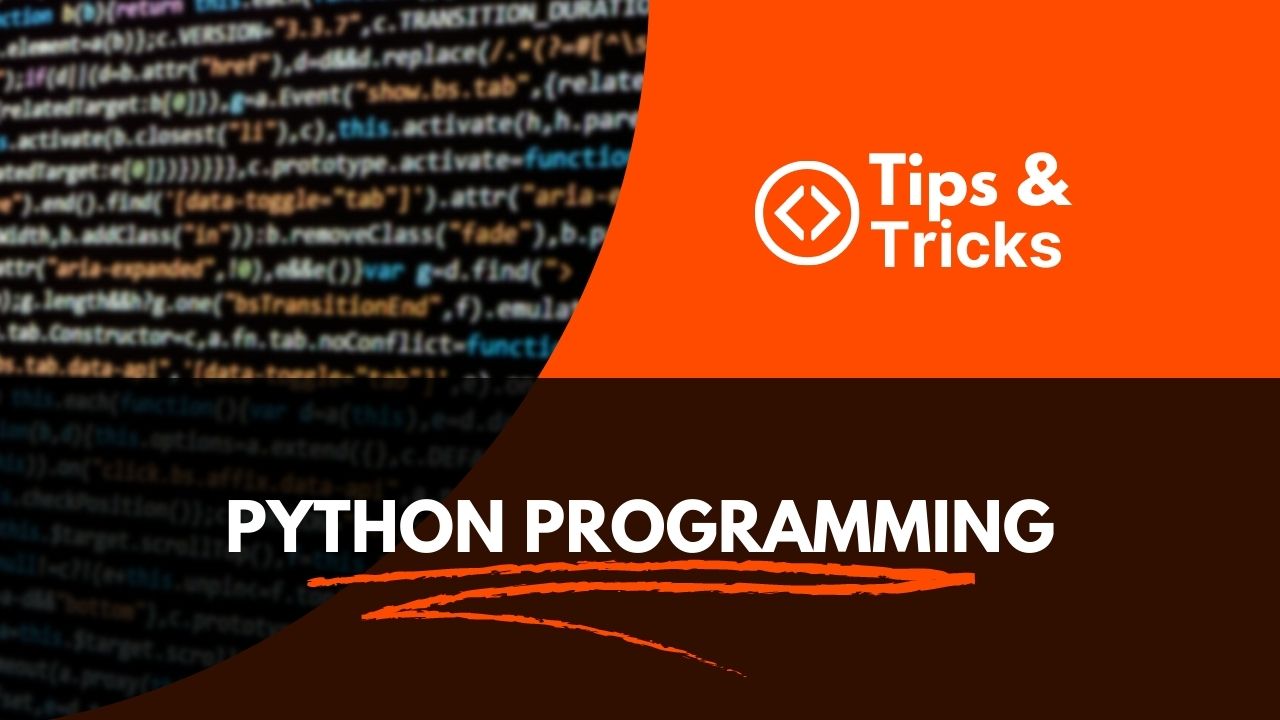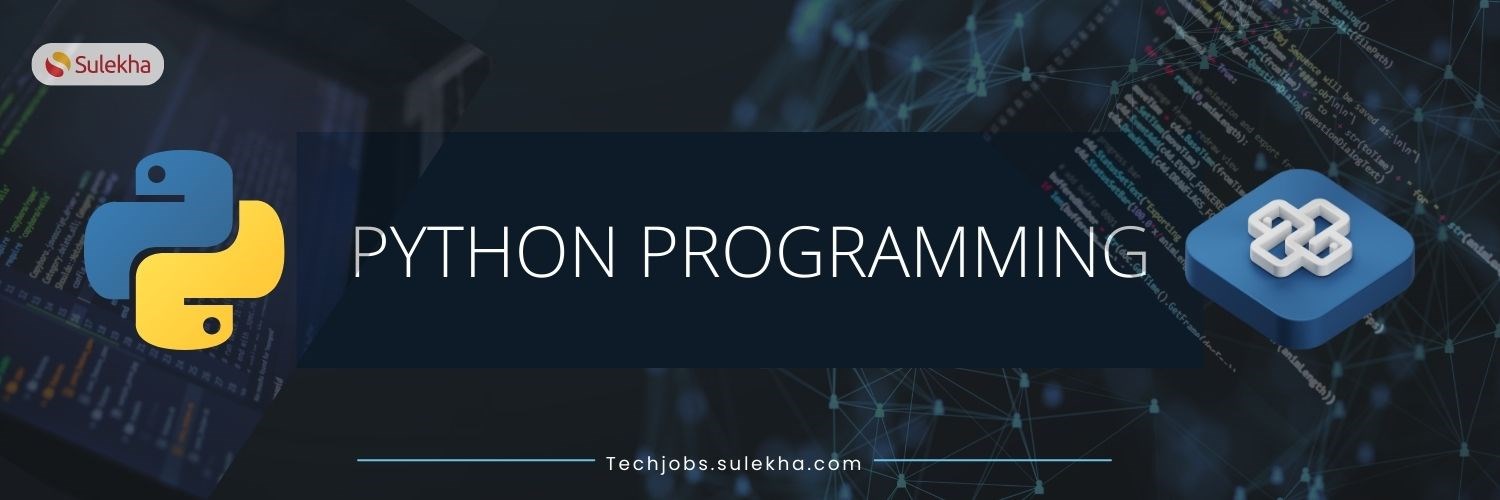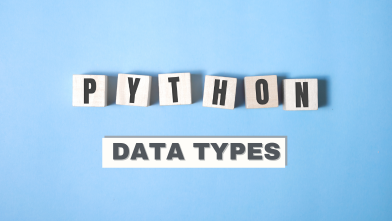10 Python Tips and Tricks for Efficient Coding

Introduction
Python is a powerful programming language that is widely used in many industries today. However, Python also has many advanced features that can make your code more efficient. In this article, we will share 10 Python tips and tricks that will help you write more efficient code. Whether you’re a beginner or more experienced with programming, there’s always a chance to optimize your code and make it more efficient. Here are some great tips and tricks that every Python programmer should know.
1. Use List Comprehensions
List comprehensions are a powerful tool that can help you write more efficient code . List comprehensions are similar to for loops, but they allow you to iterate over a list of values in a concise way. Here is an example of how to use a list comprehension to calculate the sum of all the elements in a list:
sum = 0
for element in list:
sum = sum + element
This code will iterate through the list and add each element to the sum variable. To make this code more efficient, you can use a list comprehension instead of a for loop. List comprehensions are more concise and allow you to skip over elements that you do not need. Here is an example of how to use a list comprehension to calculate the sum of all the even elements in a list:
sum = 0
for element in list:
if element % 2 == 0:
sum = sum + element
This code will iterate through the list and add each element to the sum variable, except for the first and last elements of the list. To make this code more efficient, you can use a list comprehension instead of a for loop. List comprehensions are more concise and allow you to skip over elements that you do not need.
2. Use Tuples
Tuples are another powerful tool that can help you write more efficient code . Tuples are similar to lists, but they contain only two values (instead of three). Here is an example of how to use a tuple to calculate the sum of all the elements in a list:
sum = 0
for element in list:
sum = sum + (element, )
This code will iterate through the list and add each element to the sum variable, except for the first and last elements of the list. To make this code more efficient, you can use a tuple instead of a for loop. Tuples are more concise and allow you to skip over elements that you do not need.
3. Don’t Repeat Yourself
One of the most important rules of programming is to avoid repeating yourself. This can be easily done by using functions and modules. A function is a set of code that you create to perform a specific task, and a module is a collection of functions that you can use in your project.
4. Use Loops intelligently
If you need to do something multiple times, consider using a loop. A loop lets you repeat a set of instructions multiple times without having to write them each time. For example, you could write a loop to print the contents of a list each time it’s accessed.
There are a few reasons why you might want to use loops intelligently for efficient coding. First, if you are working with a large data set, you may want to use a loop to iterate over the data so that you don't have to write a lot of code to process it all. Second, if you are working with a complex data structure, you may want to use a loop to simplify your code and make it more readable. Finally, if you are working on a time-sensitive project, you may want to use a loop to speed up your process. In general, using loops wisely can help you avoid unnecessary code and make your code more efficient. So use loops intelligently and see how they can help you speed up your coding process.
5. Use Tuples and Lists when Possible
Tuples and lists are two other useful Python data structures. A tuple is a collection of items that can be any type of object, while a list is an ordered collection of tuples. They’re very useful for storing multiple values in one place without having to write separate variables for each one. Tuples and lists are efficient data structures for storing sequences of objects. They can be used for immutable data structures (such as hash tables) while lists can be used for mutable data structures (such as lists of strings). When possible, it is better to use tuples and lists instead of individual objects because they are faster and more compact.
Sometimes, tuples and lists won’t be enough to store the data you need. In this case, you can use dictionaries to store data in an object-based way. Dictionaries are like tables that allow you to store key-value pairs (similar to lists or tuples ).
6. Use Functions to Simplify Your Code
Functions are a great way to reduce the amount of code you need to write. They’re like mini programs that you can call from other parts of your code without having to copy and paste all the code. This saves time and makes your code more organized. Functions help to make your code more organized and easier to read. They also help you to reuse code without having to rewrite it each time. Functions can make your code more efficient by breaking it up into smaller pieces that can be run separately. This can save time and processing power. Using functions can help you to avoid errors by making sure that your code is tested and debugged before it is used. All of these benefits can make your code more efficient and easier to maintain.
7. Use Modules when Necessary
Modules are another great way to simplify your code. They’re like folders that contain sets of functions and variables, which you can use in your project without having to include them each time. This saves you a lot of time and makes your code more organized.
Modules help to break down code into smaller, more manageable pieces. This can make code easier to read and debug. Additionally, modules can help to prevent name collisions between different pieces of code. Finally, modules can provide a way to reuse code across different programs. Therefore, using modules can make code more efficient overall. Additionally, modules can make your code more reusable. For example, if you have created a module that performs a certain task, you can use that module in other programs without having to recreate the code.
8. Use Keyboard Shortcuts
This will help you to avoid moving your hands back and forth between the keyboard and the mouse, which can slow you down. Using keyboard shortcuts can help you to code faster and avoid mistakes. Third, it can help you to remember your code. Finally, it can help you to improve your coding skills. By using keyboard shortcuts, you can take advantage of all of these benefits. In addition, you can also find many different keyboard shortcuts online. By using keyboard shortcuts, you can take your coding to the next level.
9. Use Variables to Store Temporary Data When Necessary
You’ll often need to store data temporarily so you can use it later in your code. You can do this using variables, which are like containers that hold a value until you need to use it again. Variables are a powerful tool that can help you to efficiently store and manipulate data within your code. When working with large amounts of data, it is often necessary to store temporary data within variables in order to avoid cluttering up your code. This can help to make your code more readable and easier to debug. Additionally, using variables can help to improve the performance of your code by avoiding the need to recalculate values that have already been computed. In general, it is good practice to use variables whenever possible in order to improve the efficiency and readability of your code.
10. Use the Try and Catch Statements When Debugging Your Code
If something goes wrong while your code is running, you can use the try and catch statements to debug it. The try statement will run the code if it’s okay, and the catch statement will run a code block if something goes wrong.
Above are some effective tips for efficient coding. Moreover, you can also use Loops to Perform repetitive Actions Sometimes, you’ll need to do something repeatedly. You can do this using loops which allow you to run a set of code instructions multiple times.
Conclusion
In conclusion, efficient coding requires careful planning and organization. By breaking down the task into smaller pieces, it is easier to identify the most efficient way to complete the task. Using comments and clear variable names can help make the code more understandable and maintainable. Testing the code regularly can help ensure that it continues to work as expected. By following these tips, coders can help improve their productivity and the quality of their code.
Find a course provider to learn Python
Java training | J2EE training | J2EE Jboss training | Apache JMeter trainingTake the next step towards your professional goals in Python
Don't hesitate to talk with our course advisor right now
Receive a call
Contact NowMake a call
+1-732-338-7323Take our FREE Skill Assessment Test to discover your strengths and earn a certificate upon completion.
Enroll for the next batch
Python Programming Hands-on Training with Job Placement
- Jan 20 2026
- Online
Python Programming Hands-on Training with Job Placement
- Jan 21 2026
- Online
Python Programming Hands-on Training with Job Placement
- Jan 22 2026
- Online
Python Programming Hands-on Training with Job Placement
- Jan 23 2026
- Online
Related blogs on Python to learn more

PYTHON PROGRAMMING
Discover Python, a versatile programming language ideal for web development, data analysis, and machine learning. Learn its easy syntax and extensive libraries to unlock a world of career opportunities in tech.

Python: The Language of Innovation and Versatility
"Master Python with Sulekha Tech Courses and boost your tech career. Find expert-led training in the USA and Canada for roles like Data Scientist and Machine Learning Engineer, and start your journey to innovation today."

Python vs. C++: Which to Learn and Where to Start
Compare Python and C++ programming languages, learn which language is best for your needs and where to start your programming journey, with tips on getting started and resources for further learning.

Top 8 DevOps Programming Languages That You Must Know
Top 8 DevOps programming languages that every DevOps engineer should know. From Python to PHP, learn the essential skills for automating and streamlining software delivery."

How did I successfully complete Python course?
Embark on a journey of student’s success story in Python programming, uncovering stories of resilience, growth, and achievement. Be inspired by their transformative experiences, unwavering dedication, and remarkable successes in mastering Python and

What are the top 10 Python Applications in the Real World?
Discover the top 10 Python applications transforming the real world across web development, audio and video Applications, business applications data science, game development, and more.

Ruby vs. Python: Pros, Cons, and Where to Start
Ruby vs. Python: Pros, Cons, and Where to Start Learning a programming language is helpful as it opens up numerous career prospects in the ever-growing technology field. Whether it is software development, web development, data science, or artificia

Data Types in Python for Data Science Applications
Python is a multipurpose programming language that finds applications across various domains. Its simplicity and flexibility make it a popular choice for web development, where frameworks like Django and Flask enable the creation of dynamic websites.

How to Build a Data Web Scraper Tool with Python
Web scraping involves processes to extract data from websites. This process is often performed using software that can simulate a user's actions on a website.
Latest blogs on technology to explore

Drug Safety & Pharmacovigilance: Your 2026 Career Passport to a Booming Healthcare Industry!
Why This Course Is the Hottest Ticket for Science Grads & Healthcare Pros (No Lab Coat Required!)" The Exploding Demand for Drug Safety Experts "Did you know? The global pharmacovigilance market is set to hit $12.5B by 2026 (Grand View Research, 202

Launch Your Tech Career: Why Mastering AWS Foundation is Your Golden Ticket in 2026
There’s one skill that can open all those doors — Amazon Web Services (AWS) Foundation

Data Science in 2026: The Hottest Skill of the Decade (And How Sulekha IT Services Helps You Master It!)
Data Science: The Career that’s everywhere—and Nowhere Near Slowing Down "From Netflix recommendations to self-driving cars, data science is the secret sauce behind the tech you use every day. And here’s the kicker: The U.S. alone will have 11.5 mill

Salesforce Admin in 2026: The Career Goldmine You Didn’t Know You Needed (And How to Break In!)
The Salesforce Boom: Why Admins Are in Crazy Demand "Did you know? Salesforce is the 1 CRM platform worldwide, used by 150,000+ companies—including giants like Amazon, Coca-Cola, and Spotify (Salesforce, 2025). And here’s the kicker: Every single one

Python Power: Why 2026 Belongs to Coders Who Think in Python
If the past decade was about learning to code, the next one is about coding smarter. And in 2026, the smartest move for any IT enthusiast is learning Python — the language that powers AI models, automates the web, and drives data decisions across ind

The Tableau Revolution of 2025
"In a world drowning in data, companies aren’t just looking for analysts—they’re hunting for storytellers who can turn numbers into decisions. Enter Tableau, the #1 data visualization tool used by 86% of Fortune 500 companies (Tableau, 2024). Whether

From Student to AI Pro: What Does Prompt Engineering Entail and How Do You Start?
Explore the growing field of prompt engineering, a vital skill for AI enthusiasts. Learn how to craft optimized prompts for tools like ChatGPT and Gemini, and discover the career opportunities and skills needed to succeed in this fast-evolving indust

How Security Classification Guides Strengthen Data Protection in Modern Cybersecurity
A Security Classification Guide (SCG) defines data protection standards, ensuring sensitive information is handled securely across all levels. By outlining confidentiality, access controls, and declassification procedures, SCGs strengthen cybersecuri

Artificial Intelligence – A Growing Field of Study for Modern Learners
Artificial Intelligence is becoming a top study choice due to high job demand and future scope. This blog explains key subjects, career opportunities, and a simple AI study roadmap to help beginners start learning and build a strong career in the AI

Java in 2026: Why This ‘Old’ Language Is Still Your Golden Ticket to a Tech Career (And Where to Learn It!
Think Java is old news? Think again! 90% of Fortune 500 companies (yes, including Google, Amazon, and Netflix) run on Java (Oracle, 2025). From Android apps to banking systems, Java is the backbone of tech—and Sulekha IT Services is your fast track t